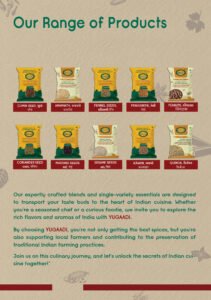SPICING IT UP: HOW IPM IS TRANSFORMING RAJASTHAN’S SPICE GAME!
Integrated Pest Management (IPM) is a sustainable approach to managing pests in agricultural practices, particularly significant in the cultivation of spices like cumin seeds, fennel, and coriander, which are predominantly produced in Rajasthan, India. Rajasthan’s arid climate and diverse soil types create unique challenges and opportunities for spice cultivation.

Cumin seeds, known for their distinctive flavor and health benefits, thrive in this region, where farmers employ IPM strategies to combat pests while minimizing chemical use. Fennel, with its aromatic seeds, is another vital crop that benefits from IPM practices, which include monitoring pest populations, using biological control agents, and implementing cultural practices to enhance crop resilience. Coriander, valued for its culinary and medicinal properties, also sees the application of IPM techniques to ensure healthy yields.
The integration of these methods not only helps in controlling pest populations effectively but also promotes environmental sustainability and enhances the quality of the produce. Farmers in Rajasthan are increasingly adopting IPM programs, which involve training and collaboration with agricultural experts to implement best practices tailored to local conditions. This holistic approach not only improves crop health but also supports the livelihoods of farmers by reducing dependency on chemical pesticides, thus fostering a healthier ecosystem.
The emphasis on IPM in Rajasthan’s spice production highlights the importance of sustainable agriculture in ensuring food security and promoting biodiversity. As consumers become more aware of the benefits of organically grown spices, the demand for products cultivated through IPM practices is likely to increase, further encouraging farmers to adopt these methods. The success of IPM in Rajasthan serves as a model for other regions facing similar agricultural challenges, demonstrating that with the right strategies, it is possible to achieve high-quality yields while protecting the environment. In conclusion, the integration of pest management practices in the cultivation of cumin, fennel, and coriander not only enhances the quality and sustainability of these spices but also contributes to the overall health of the agricultural ecosystem in Rajasthan. By prioritizing IPM, farmers can ensure that they meet the growing demand for safe and sustainably produced spices, ultimately benefiting both their communities and the environment.
